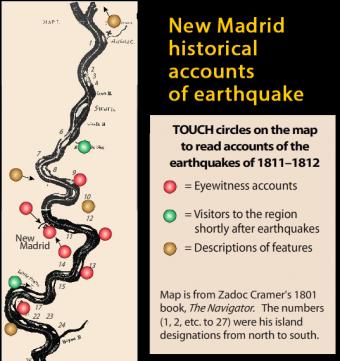
Didn't realize that there were so many written records back then?
Many residents along the Mississippi experienced vigorous ground shaking and wrote about it in 1811 and 1812. They include visitors to the region soon after the earthquakes. Touch spots on map to read accounts of the devastation.
The tabs above link to related interactives and animations.
ABOUT TO GO AWAY: IRIS is going to discontinue Flash animations in 2020. If you have a Flash player app and would like a copy, download this .swf file.
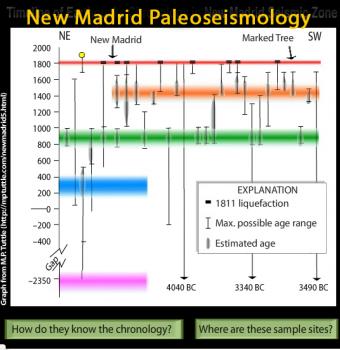
This interactive timeline shows that the 1811-12 earthquakes in New Madrid weren't the first.
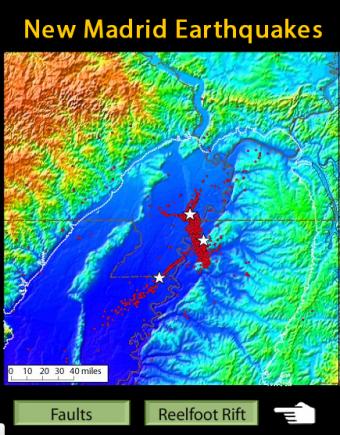
There are four major faults in and around the Reelfoot Rift related to earthquakes in the New Madrid area.
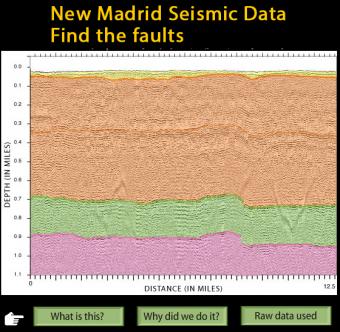
Raw seismic data gives us information about the ground beneath us. This interactive cross section shows faults beneath the New Madrid area.
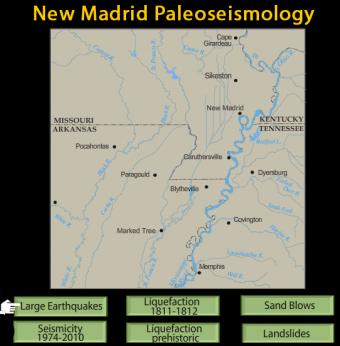
Learn about past large earthquakes, liquefaction, seismicity, sand blows, and landslides in this interactive map.
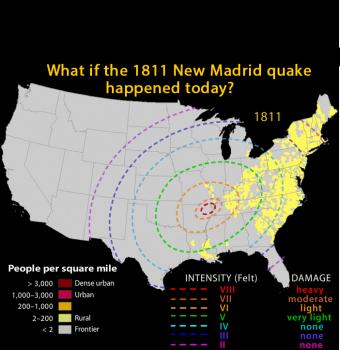
Scroll over the timeline from 1800 to 2010 to see the population of the United States grow to see what the impact of the 1811-1812 New Madrid earthquake would have today.
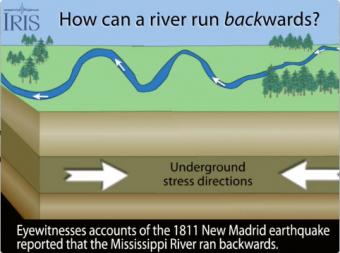
No audio: How can a river run backwards? This animation shows how a river can be forced backwards, albeit only long enough to find a new route. Several written accounts from the New Madrid earthquake of 1811 and 1812 describe the horror as great waters swashed upriver causing lakes to form on previously dry land.